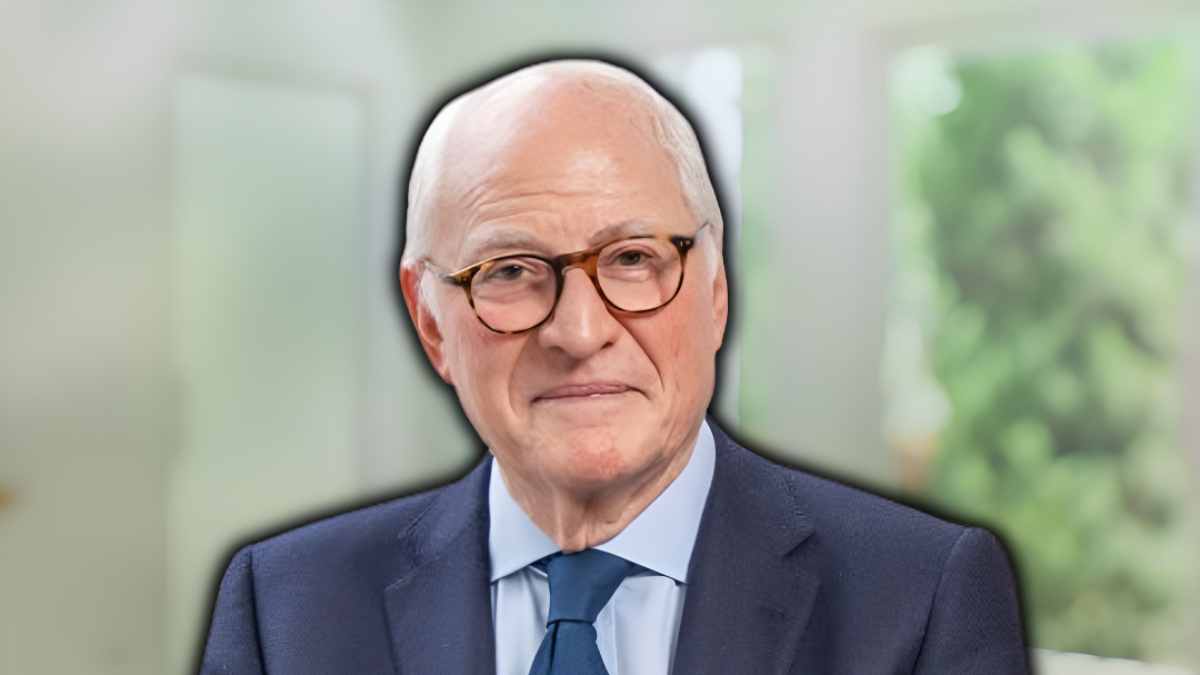Anthony Grabiner: A Lifetime at the Apex of British Law, Academia and Public Life

Anthony Stephen Grabiner, Baron Grabiner KC, is one of the most distinguished figures in modern British life. His legal achievements, academic leadership, and public service mark him as a person of rare influence. This article explores who he is, what he has done, and why his career remains both relevant and instructive today.
Early Life and Education
Anthony Grabiner was born on 21 March 1945 into a Jewish family. His parents, Ralph Grabiner and Freda Cohen, raised him in a modest background. He attended Central Foundation Boys’ School in Hackney before winning a place at the London School of Economics, where he earned First Class Honours in his Bachelor of Laws degree in 1966 and followed this up with a Master of Laws with distinction in 1967. He then proceeded to Lincoln’s Inn, one of the four Inns of Court, and was called to the Bar in 1968.
Legal Career and Practice
Early Legal Roles
After qualifying, Grabiner’s early work included serving as Standing Junior Counsel to the Department of Trade and the Export Credits Guarantee Department from 1976 to 1981, and as Junior Counsel to the Crown from around 1978 to 1981. His reputation grew quickly and in 1981 he “took Silk”, becoming a Queen’s Counsel (QC), now known as a King’s Counsel (KC) since the reign of King Charles III. This appointment established him as a leading advocate in commercial law.
Specialisations and Chambers
Grabiner’s primary areas of expertise include banking and finance, energy, oil and gas, civil fraud, competition law, merger investigations, and shareholder disputes. He is a senior figure at One Essex Court, a leading commercial chambers in London, where he has served as Head of Chambers. As well as appearing in High Court cases, major international arbitrations form part of his practice. He has also sat as an arbitrator in domestic and international disputes and has been admitted to practise in other jurisdictions such as the Eastern Caribbean, including the British Virgin Islands and the Cayman Islands.
Notable Cases and Work
Some of the landmark or high-profile work Grabiner has been involved in include acting for JP Morgan in securing payment from German bank WestLB following the collapse of Enron, appearing in the UK Supreme Court in relation to international arbitration law and issues of apparent bias in Halliburton Co versus Chubb Bermuda Insurance Ltd, and intervening in important competition law matters such as the Microsoft-Activision Blizzard acquisition review by the Competition Appeal Tribunal. Grabiner also acts in advisory roles, often behind the scenes, lending his legal mind to corporate governance, regulatory issues, and institutional reviews.
Academic Involvement and Institutional Leadership
While his main domain has been legal practice, Anthony Grabiner has held several major academic and governance roles. At the London School of Economics he served as Chair of the Governors from 1998 to 2007, having earlier been Vice-Chair. His oversight contributed to steering one of the United Kingdom’s top social science and economics institutions. From October 2014 until 2021 he served as Master of Clare College, Cambridge, a senior role involving leadership, administration, maintaining high academic standards and representing the College’s interests in the wider university. Beginning in 2015, Grabiner also took on the presidency of the University of Law, an institution specialising in legal education and professional training.
Political and Public Service
Life Peerage and House of Lords
In 1999, Anthony Grabiner was made a life peer, taking the title Baron Grabiner of Aldwych in the City of Westminster. Initially, he sat on the Labour benches in the House of Lords.
Shift from Labour Whip to Crossbench
In 2015 he resigned the Labour whip, citing concerns about the direction the party was taking under Jeremy Corbyn. He continued as a non-affiliated peer and later as a crossbencher, retaining his membership of the Labour Party but no longer bound to follow party discipline in the Lords.
Roles in Corporate Governance and Controversies
Grabiner has not only practised law but has occupied several senior non-executive positions in businesses and holding companies. He was the non-executive chairman of Taveta Investments, the holding company for the Arcadia Group, from 2002 until December 2015. He has also served as a non-executive director of Next plc and was a member of the boards of Goldman Sachs International and its banking arm from around mid-2015 to 2021. These roles have sometimes drawn scrutiny, especially in light of corporate collapses or governance criticisms. For example, in parliamentary reports following the collapse of British Home Stores, questions were raised about governance in the Arcadia Group and the role of its board-level oversight, including Lord Grabiner’s chairmanship of Taveta. Some MPs considered his oversight role as weak or docile because his engagement with certain decisions was seen to have been limited.
Character, Reputation and Influence
Lord Grabiner is widely regarded as one of the commercial Bar’s most authoritative and capable figures. Qualities ascribed to him by peers, clients and legal directories include exceptional advocacy skills, especially in high-stakes commercial litigation and arbitration, and a deep understanding of tactical and strategic aspects of legal disputes. He is known for his gravitas, integrity and reputation for delivering strong, clear, defensible legal arguments. He has also had a significant impact in educational leadership, helping to shape legal education and governance in major universities. At the same time, some observers and parliamentary reports have critiqued the roles he has held in business governance, especially when results were unsatisfactory or failings occurred. Nonetheless, the balance of commentary tends to affirm that his contributions have been substantial.
Legacy and Ongoing Relevance
Anthony Grabiner’s influence touches several dimensions. In law and legal practice he has shaped precedent through major commercial cases, arbitration decisions, and interpretations of law in areas such as competition, banking, and international arbitration. In education his leadership roles at the London School of Economics, Clare College and the University of Law mean that he has helped to shape the training and governance of future lawyers. In public service and governance his peerage, parliamentary work, and non-executive directorships place him in the realm of those who bridge the legal, corporate, and public sectors. Through controversies and criticisms, he also illustrates the ongoing tension between legal authority, corporate governance, and ethical expectations in public life. His international arbitration work, ability to shift between advisory and litigation roles, and cross-jurisdictional practice represent the contemporary demands on barristers in an increasingly globalised legal environment.
Conclusion
Anthony Grabiner is more than just a name among British legal elites. He exemplifies what a barrister can achieve: combining intellectual rigour, legal mastery, educational leadership, and public responsibility. Whether in court, advising boards, guiding academic institutions or speaking in the House of Lords, his impact is broad and multi-dimensional. For students of law, governance, or public policy, Lord Grabiner’s career offers lessons about ambition balanced with responsibility, about the importance of integrity, and about the need to engage across sectors. As legal systems evolve, especially with globalisation, regulatory complexity and heightened public scrutiny, figures like Grabiner remain vital models of what high-level professional excellence accompanied by ethical awareness can look like.



